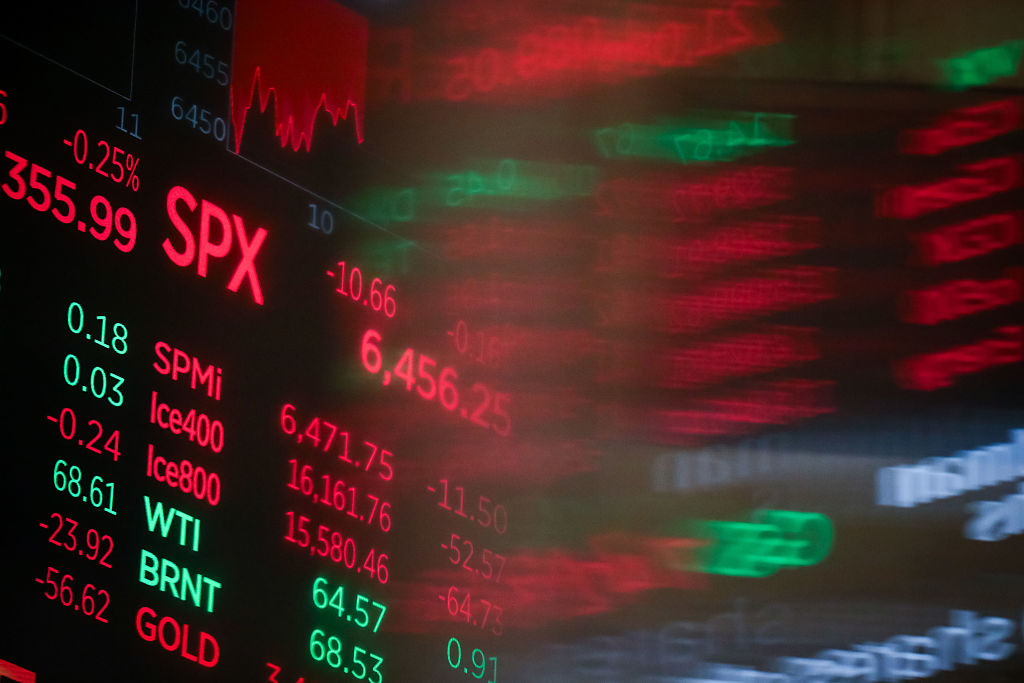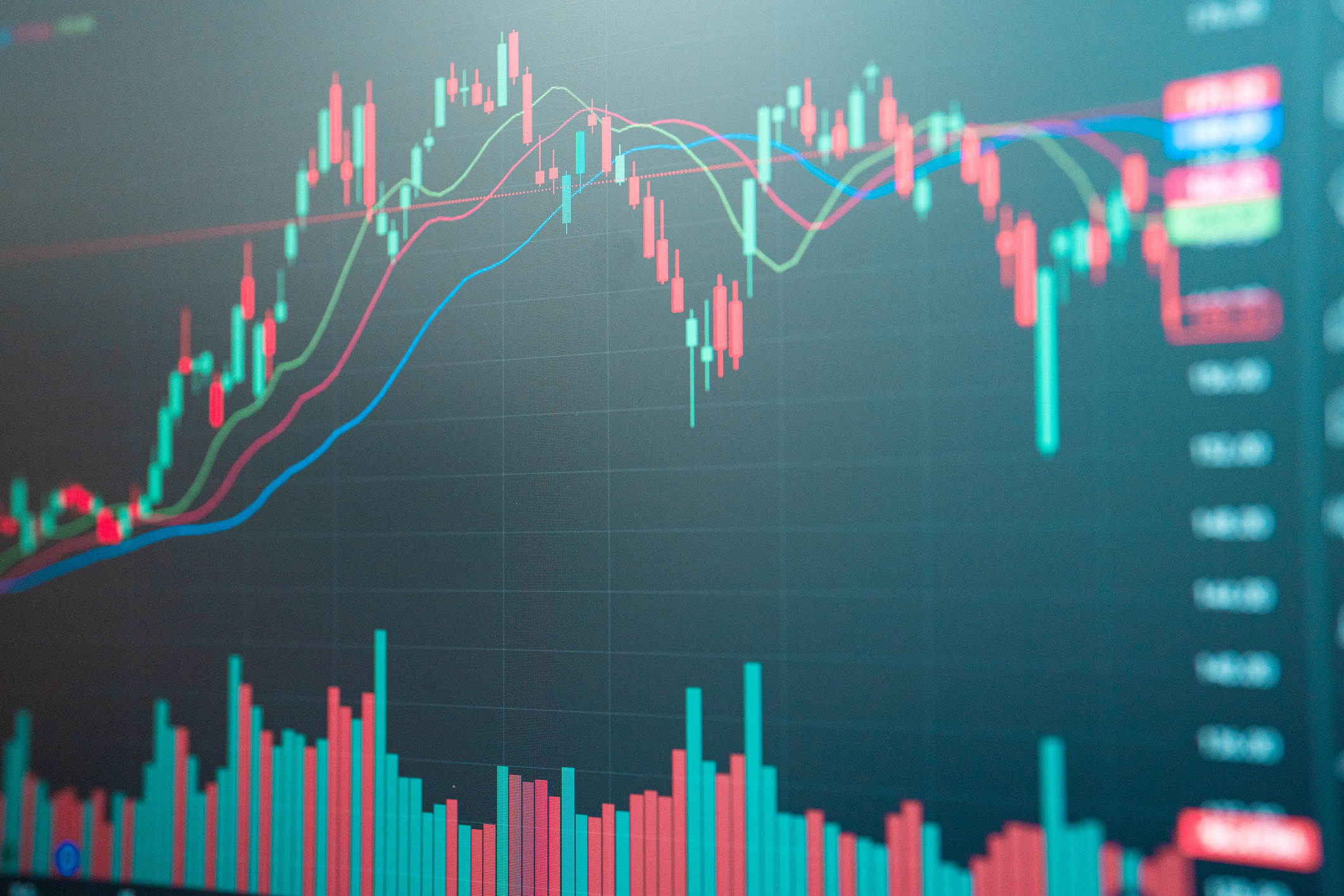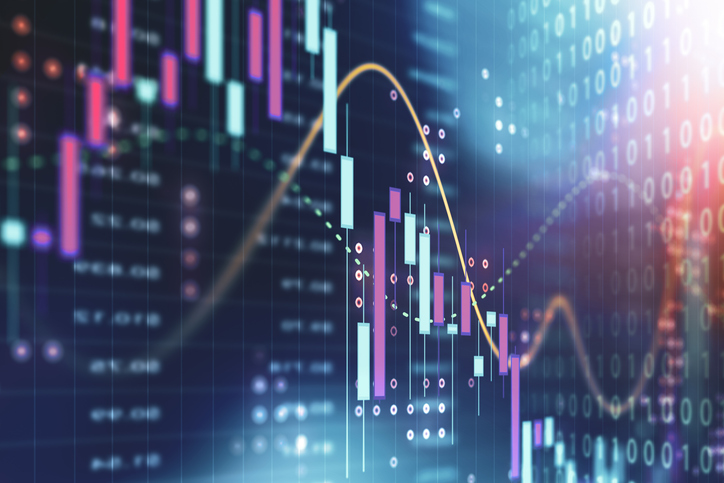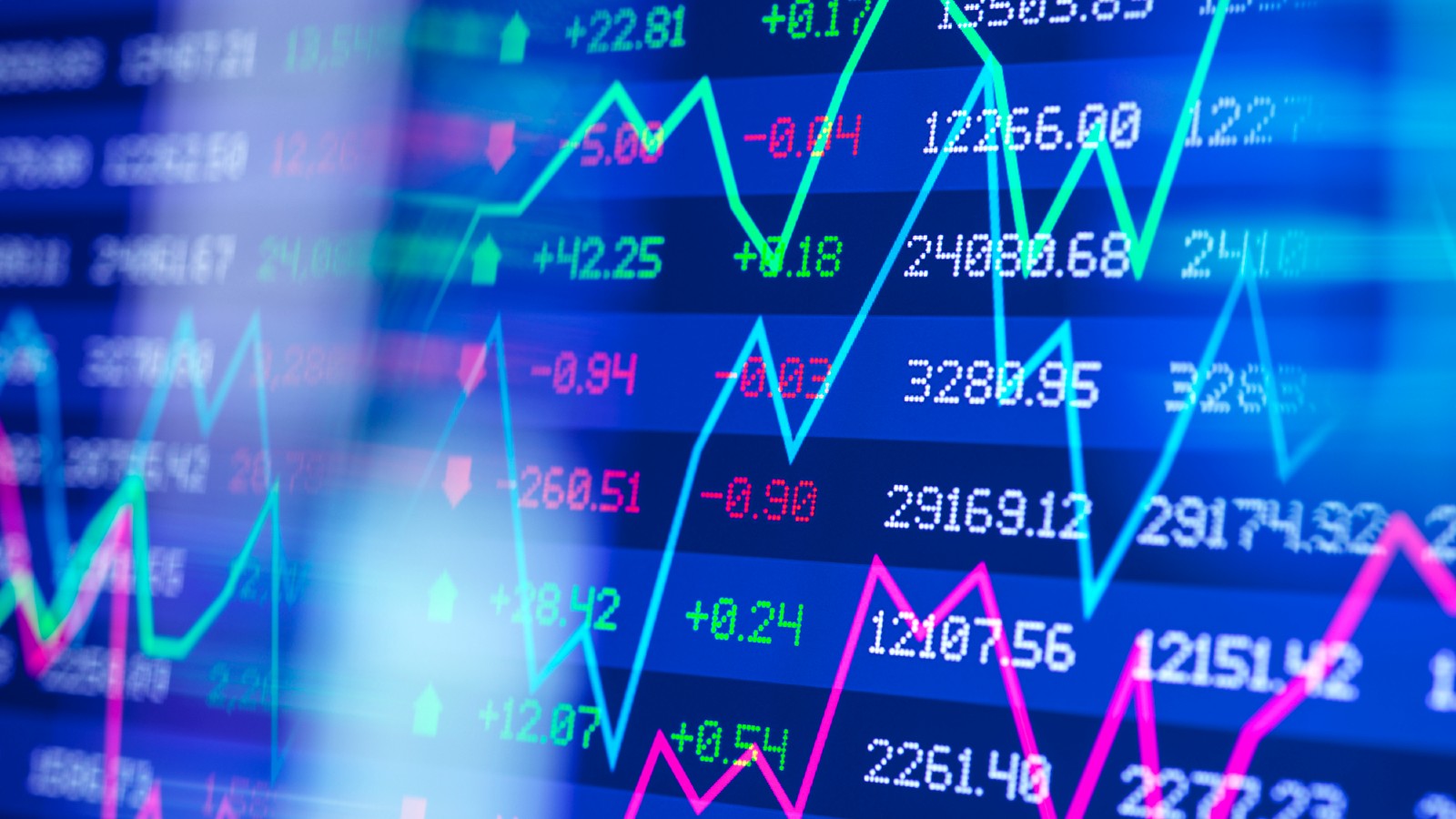The 7 Best Mutual Funds for This Market
With Europe on edge, this portfolio emphasizes the two best sectors in a volatile market—and also includes two innovative bond funds.

Profit and prosper with the best of Kiplinger's advice on investing, taxes, retirement, personal finance and much more. Delivered daily. Enter your email in the box and click Sign Me Up.
You are now subscribed
Your newsletter sign-up was successful
Want to add more newsletters?

Delivered daily
Kiplinger Today
Profit and prosper with the best of Kiplinger's advice on investing, taxes, retirement, personal finance and much more delivered daily. Smart money moves start here.

Sent five days a week
Kiplinger A Step Ahead
Get practical help to make better financial decisions in your everyday life, from spending to savings on top deals.

Delivered daily
Kiplinger Closing Bell
Get today's biggest financial and investing headlines delivered to your inbox every day the U.S. stock market is open.

Sent twice a week
Kiplinger Adviser Intel
Financial pros across the country share best practices and fresh tactics to preserve and grow your wealth.

Delivered weekly
Kiplinger Tax Tips
Trim your federal and state tax bills with practical tax-planning and tax-cutting strategies.

Sent twice a week
Kiplinger Retirement Tips
Your twice-a-week guide to planning and enjoying a financially secure and richly rewarding retirement

Sent bimonthly.
Kiplinger Adviser Angle
Insights for advisers, wealth managers and other financial professionals.

Sent twice a week
Kiplinger Investing Weekly
Your twice-a-week roundup of promising stocks, funds, companies and industries you should consider, ones you should avoid, and why.

Sent weekly for six weeks
Kiplinger Invest for Retirement
Your step-by-step six-part series on how to invest for retirement, from devising a successful strategy to exactly which investments to choose.
Over long periods, stocks have always beaten bonds and money in the bank by wide margins. But Europe’s sovereign-debt crisis imperils the bull market in U.S. stocks. Europe could well suffer the dreaded double-dip recession, which in turn would hamper the U.S. economic recovery. I think the odds are still with the bulls, but Europe is a wild card.
With that backdrop in mind, I offer my seven top mutual fund picks for the second half of 2010, as well as the percentage of your assets I recommend investing in each of them. If your time horizon is long and your taste for risk great, you may want to raise the percentage of your assets in the stock funds (and lower your allocation to bond funds). If your horizon is short or your tolerance for risk low, you may want to do the opposite.
The portfolio puts a lot of money into two areas: large-company growth stocks and emerging-markets stocks. It also employs a market-timing fund, as well as two unusual bond funds. I’m loath just now to own many so-called value stocks or shares of small companies. Most of these stocks will be vulnerable if the U.S. economy falters. (For a different take on small-company stocks, read James Glassman’s Micro Stocks’ Big Payoff.)
From just $107.88 $24.99 for Kiplinger Personal Finance
Become a smarter, better informed investor. Subscribe from just $107.88 $24.99, plus get up to 4 Special Issues

Sign up for Kiplinger’s Free Newsletters
Profit and prosper with the best of expert advice on investing, taxes, retirement, personal finance and more - straight to your e-mail.
Profit and prosper with the best of expert advice - straight to your e-mail.
Large-company growth stocks are the sweet spot in the current market. They’re cheap relative to historical valuations, and the companies hold record amounts of cash on their balance sheets and can grow even as the world’s developed economies stagnate. Most do a lot of business in fast-growing emerging markets.
I’m talking about stocks such as Amgen (symbol AMGN), Google (GOOG) and Eli Lilly (LLY)—three of the largest holdings in Primecap Odyssey Growth (POGRX). Over the past five years through June 21, the fund returned an annualized 4.2%, while Standard & Poor’s 500-stock index returned 0.4%. You should put 20% of your money in Primecap.
I’d invest 15% in Fidelity Contrafund (FCNTX). Will Danoff is one of the few managers who has thrived for decades in Fidelity’s cutthroat environment. Contrafund owns the same kinds of stocks that Primecap owns but is positioned slightly more conservatively. Over the past 15 years, Danoff has steered Contrafund to an annualized 9.4% return, compared with 6.8% for the S&P 500. If you want a more compact portfolio, put 35% of your money into either Primecap or Contrafund.
Emerging markets are maturing rapidly. Yes, they face enormous problems in corporate governance and in their political systems. Surely, some of them will implode. But emerging nations are growing more quickly than developing countries, and their fiscal houses are largely in order. The developed world, by contrast, remains awash in debt. Over the past ten years, the MSCI Emerging Markets index has returned an annualized 11%. I think stocks in emerging markets will continue to outperform developed-markets stocks.
So I’m recommending that you allocate 15% of your investments to emerging-markets stocks and another 5% to emerging-markets bonds (more about the bonds later). Investing in all the diversified funds in this portfolio, in the percentages I recommend, will get you an emerging-markets-stock allocation of 10%. Put an additional 5% of your money in Matthews Asia Dividend (MAPIX), which has returned an annualized 7.5% over the past three years with about the same volatility as the U.S. stock market.
A big part of this portfolio’s emerging-markets exposure comes from Harbor International (HAINX). Lead manager Hakan Castegren, 75, and his longtime co-managers have stashed 21% of fund assets in emerging markets. The fund returned an annualized 6.7% over the past ten years, roughly six percentage points per year better than the MSCI EAFE index. Castegren looks for large, growing companies selling at reasonable prices. Put 20% of your money into this superb fund.
Another slug of the portfolio’s emerging-markets holdings comes via, of all things, a fund that practices market timing. At last word, Leuthold Asset Allocation (LAALX) had 25% of its assets in emerging markets. Lead manager Steven Leuthold, who has been researching markets for more than 40 years, is best known as an investment strategist. This fund employs number-driven techniques to invest between 30% and 70% of assets in stocks; the remainder goes into bonds and cash. Currently, Leuthold remains bullish, so the fund is about 60% in stocks.
The Leuthold fund lost an annualized 2.5% over the past three years. But a similar fund, Leuthold Core Investment (LCORX), which is closed to new investors, returned an annualized 7.7% over the past ten years. In uncertain times, I think Leuthold Asset Allocation will prove its worth. Put 20% of your money here.
Bill Gross is a renowned big-picture thinker and longtime star manager of Pimco Total Return (PTTDX). This fund, however, is limited in the size of the bets it can make, both by its prospectus and by its $228-billion girth. It’s the largest fund in the world.
Pimco Unconstrained Bond (PUBDX) faces no such limitations. It’s a relatively new fund that makes large wagers based on the thinking of Pimco’s top strategists. It can potentially profit even when bond yields are rising (bond prices move inversely with yields). Put 15% of your money here.
Another bond fund seeks to profit from the economic growth and fiscal strength of emerging markets. DoubleLine Emerging Markets Income N (DLENX) makes sense for 5% of your money. This fledgling fund comes from a new firm started by the group of bond professionals who left TCW after the company forced out chief investment officer Jeffrey Gundlach. Lead manager Luz Padilla ran a similar fund successfully for several years at TCW.
Steven T. Goldberg (bio) is an investment adviser.
Profit and prosper with the best of Kiplinger's advice on investing, taxes, retirement, personal finance and much more. Delivered daily. Enter your email in the box and click Sign Me Up.

-
 How to Watch the 2026 Winter Olympics Without Overpaying
How to Watch the 2026 Winter Olympics Without OverpayingHere’s how to stream the 2026 Winter Olympics live, including low-cost viewing options, Peacock access and ways to catch your favorite athletes and events from anywhere.
-
 Here’s How to Stream the Super Bowl for Less
Here’s How to Stream the Super Bowl for LessWe'll show you the least expensive ways to stream football's biggest event.
-
 The Cost of Leaving Your Money in a Low-Rate Account
The Cost of Leaving Your Money in a Low-Rate AccountWhy parking your cash in low-yield accounts could be costing you, and smarter alternatives that preserve liquidity while boosting returns.
-
 Dow Hits New High Then Falls 466 Points: Stock Market Today
Dow Hits New High Then Falls 466 Points: Stock Market TodayThe Nasdaq Composite, with a little help from tech's friends, rises to within 300 points of its own new all-time high.
-
 Dow Climbs 559 Points to Hit a New High: Stock Market Today
Dow Climbs 559 Points to Hit a New High: Stock Market TodayThe rotation out of tech stocks resumed Tuesday, with buying seen in more defensive corners of the market.
-
 Stocks Rally as Investors Buy the Dip: Stock Market Today
Stocks Rally as Investors Buy the Dip: Stock Market TodayMost sectors are "go" only a day after talk of bubbles, extended valuations and narrow breadth undermined any kind of exuberance.
-
 S&P 500 Sees New Highs on Shutdown Day: Stock Market Today
S&P 500 Sees New Highs on Shutdown Day: Stock Market TodayMost of its components were in the red, but the S&P 500 Index still managed to hit a new intraday all-time high.
-
 Stock Market Today: Another Quarter, More Mixed Price Action
Stock Market Today: Another Quarter, More Mixed Price Action"Up and to the right" remains the general trend despite persistent uncertainty around critical policy issues.
-
 Stock Market Today: Nasdaq Outperforms as Big Tech Rallies
Stock Market Today: Nasdaq Outperforms as Big Tech RalliesThe Dow Jones Industrial Average closed lower for a second day as Amgen and Merck fell.
-
 Stock Market Today: Stocks Struggle After Trump's EU Tariff Threats
Stock Market Today: Stocks Struggle After Trump's EU Tariff ThreatsStocks pared early gains after Trump threatened the European Union with 25% tariffs.
-
 Stock Market Today: The S&P 500 Reclaims the 6K Level
Stock Market Today: The S&P 500 Reclaims the 6K LevelInvestors see Scott Bessent as a safe shepherd of the economy as the president-elect burnishes his "Tariff Man" reputation.